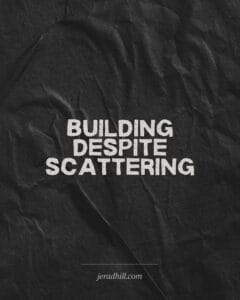A tech reviewer’s 30-day experiment to break free from the cheap dopamine economy that’s hijacking our ability to achieve anything meaningful
I’ve spent half my adult life trying to understand why I do the things I don’t want to do. Countless books, frameworks, productivity systems, all attempts to solve a puzzle that, I’m finally realizing, has been staring me in the face from the glowing screen in my pocket.
The truth hit me recently: I’ve blown out my dopamine receptors on cheap thrills, leaving my mind unable to handle complexity. It doesn’t want to do hard things anymore because it knows there are easier ways to get the payoff. And tomorrow, when my iPhone 17 Pro Max arrives, my latest in a collection that includes over 65 iOS devices and 115+ Android devices, I’m doing something radical. I’m starting fresh. No backup restore. No social media apps. Not even YouTube. Just 30 days of living like it’s 2007 again.
The Modern Addiction Nobody Talks About
We laugh off terms like “doom scrolling” and “brain rot” as if they’re just quirky aspects of modern life. But they’re symptoms of something far more serious. We’ve allowed cheap dopamine to completely rewire our desires. This is why we procrastinate. Why we fail to show up for ourselves. Why we can’t achieve more, can’t stop the habits we hate, can’t break the addictions we’re ashamed of.
Everything around us is designed to solve for discomfort. At any moment, we can escape pain in exchange for pleasure. But here’s what I’ve learned: this exchange rate is destroying us.
The Runner’s High We’ve Forgotten
Why do runners get runner’s high? It’s the payoff after hard work; the way our brains were designed to operate. Effort first, reward second. Our brains should only be receiving dopamine after we’ve earned it through struggle, through pushing ourselves, through doing something that matters.
But now? We’re mainlining rewards without any effort at all. The social media algorithms are smarter and faster than us, especially when our willpower is low. They know exactly which rabbit hole to send us down, whether we need memes to laugh at or outrage to feed on. They’re designed this way because our attention equals their revenue. We are the product being sold.
My Journey Through the Gadget Graveyard
As someone who reviews phones for a living, I’ve owned every version of the iPhone, sometimes multiple of the same model. When I logged into my new Google Pixel 10 Pro recently, the Kindle app identified it as “Jerad’s 115th Android Device.” Yet despite having access to the most advanced technology in human history, I’ve never been closer to wanting to throw it all away.
I argue with myself constantly. I need a good camera for my work. I need apps to edit and post content. But then I realize: I almost never post in the moment anyway. It’s always later. So why do I need this dopamine dispenser in my pocket at all times?
I’ve tried deleting the problematic apps. They always creep back. The algorithm is patient. It knows I’ll return.
The Unsustainable Present
I’m old enough to remember life before we carried dopamine vending machines in our pockets. The simplicity of those times feels like a half-remembered dream. What’s happening to our brains right now is not sustainable. Modern technology only engages a few of our senses currently. Imagine what will happen when it can engage all of them. Will you be strong enough to overcome it? I’m not sure I am. That’s why I’m starting now.
The printing press began this journey of instant access to stimulation, but the smartphone has accelerated it beyond anything our ancestors could have imagined. We’re robbing ourselves of the ability to be content and happy on our own. Every innovation promises to solve discomfort, but in solving it, we lose the very thing that makes achievement meaningful.
The Spiritual Dimension
I believe God created our brains to be elastic, to change and grow. The fixed mindset is a relic of the past, and science is finally catching up to what faith has always known: we can be transformed by the renewing of our minds (Romans 12:2).
But we’ve misdirected the desire God planted in us. He designed us to thirst, but for Him, not for the next notification. Jesus said, “Everyone who drinks of this water will be thirsty again, but whoever drinks of the water that I will give him will never be thirsty again” (John 4:13-14 ESV). Every scroll leaves us thirstier. Every binge leaves us emptier. We’re drinking from wells that not only don’t satisfy but actually increase our thirst.
This is about more than productivity or self-improvement. This is about reclaiming the desires God gave us and pointing them back toward their intended target – Him.
The 30-Day Experiment
So tomorrow, when that new iPhone arrives, I’m conducting an experiment on myself. For 30 days:
- No social media apps
- No YouTube
- Only default phone apps (and I’ll delete as many of those as possible)
- No restoration from backup – completely fresh start
This isn’t about becoming a digital hermit forever. It’s about breaking the cycle, resetting my brain’s reward system, and remembering what it feels like to earn dopamine the old-fashioned way: through effort, through meaningful work, through real connections, through pursuing God without distraction.
How will I prevent myself from installing troublesome apps? There will be accountability measures in place.
The Path Forward
Those who learn to control their intake will be the ones who can control their output. It’s the age-old principle of “garbage in, garbage out,” but now the garbage is more sophisticated, more addictive, and more socially acceptable than ever before.
The frameworks I’ve chased for years, trying to be more productive, to understand myself better, weren’t wrong, but they were missing the point. You can’t optimize a system that’s fundamentally broken. You can’t be productive when your brain is constantly seeking the next hit. You can’t understand yourself when you’re never alone with your thoughts long enough to hear them.
The Reclaiming
This isn’t just my story, it’s ours. We’ve all been robbed of something precious: our ability to delay gratification, to find joy in effort, to be alone with our thoughts, to pursue God without distraction. But the beautiful truth is that our brains can be renewed. God designed them that way.
Every time we choose the difficult good over the easy emptiness, we’re participating in our own restoration. Every moment we resist the ping and choose presence, we’re rewiring our brains back toward their intended design.
The question isn’t whether you need to make a change; you already know the answer. The question is whether you’ll start today or wait until the robbery is complete.
I’m starting tomorrow with a new phone and an old way of living. Not because I’m strong enough to overcome what’s coming, but because I’m finally admitting I’m not. And in that admission, in that return to simplicity, in that choice to pursue earned dopamine over cheap hits, I’m betting I’ll find what I’ve been scrolling for all along: the ability to desire rightly, to work deeply, and to drink from the only well that truly satisfies.
Join me. Your future self, the one who can focus, who can achieve, who can break free from the habits that haunt you, is waiting on the other side of this choice.



